65 Tristan’s Tip : Get It In Writing

Episode Notes
On the tenth entry of Tristan’s Tips, our special guest Tristan Layfield details the importance of getting it in writing. He focuses on three key areas this often comes into play.
Connect with Tristan on LinkedIn, IG, FB, and Twitter!
https://www.linkedin.com/in/tristanlayfield/
https://www.instagram.com/layfieldresume/
https://www.facebook.com/LayfieldResume/
https://twitter.com/layfieldresume
TRANSCRIPT
Tristan: What’s going on, y’all? It’s Tristan of Layfield Resume Consulting, and I’ve teamed up with Living Corporate to bring you all a weekly career tip. Today let’s talk about the importance of getting things in writing, A.K.A. having your receipts. When I started at my current job, my boss said, “You really like to get things in writing, don’t you?” And while that question is rhetorical, the answer is “Uh, yes.” I’ve been burnt in the past, so I’ve learned from my mistakes, and I wanted to make sure that I always had something to refer to. Getting things in writing ensures not only that everyone is clear but that you’re also covering yourself. There are so many times where getting it in writing comes into play, but I’m gonna focus on three. Have you ever led or been on a project where people weren’t clear about their responsibilities? That is the worst, but imagine if you put everyone’s duties in writing and distributed them out to the team. Some of the confusion wouldn’t happen, and even if it does, there’s more accountability as everyone was made aware of who was responsible for what and had the opportunity to question it. The next situation where getting it in writing could come in handy is during a meeting with your boss. Sometimes these meetings are scheduled and sometimes they’re not, but either way, I always suggest sending a follow-up email summarizing the topics of discussion, no matter if you were discussing a new project you’ll be taking on, getting their approval for PTO, or even talking about your best sales incentive. If they don’t respond, you’ll have a record to refer to at any given point in time, and it puts the onus on them to correct anything you may have misunderstood. Lastly, I know when you get that verbal offer for a new job, you want to quit your current job right in that moment, but do not until you receive that offer in writing. I’ve seen this go wrong one too many times with candidates just like yourself ending up burnt. You don’t want to have to retract your resignation and end up looking like a fool. Also, make sure you get any contingencies, like a signing bonus or 90-day bonus in writing, too so you can hold your employer to it. There are so many instances where getting it in writing can not only help you out, but really could save you from so much turmoil. Do yourself a favor and start documenting things a bit more so you can pull out those receipts. This tip was brought to you by Tristan of Layfield Resume Consulting. Check us out on Instagram, Twitter, and Facebook @LayfieldResume, or connect with me, Tristan Layfield, on LinkedIn.
Find out more at https://living-corporate.pinecast.co
